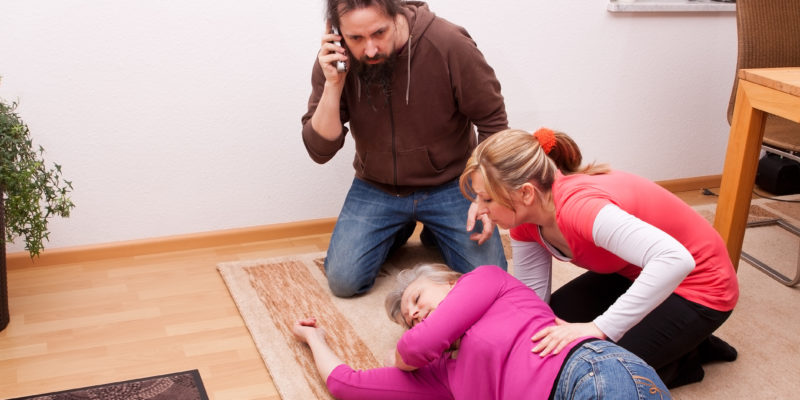If you have seizures or are the parent of a child who has seizures, then…

What to Do When Someone Is Having a Seizure
There is a lot of dangerous misinformation out there about what you should do if someone is having a seizure. Doing the wrong thing can actually cause injuries, while doing the right thing can help keep someone safe in a scary and potentially dangerous scenario.
Given that 1 in 26 people will develop epilepsy at some point in their lifetimes, the likelihood that you will encounter someone having a seizure is high. However, you may not even recognize it. Seizures rarely look like they do in movies, and old advice, like putting a spoon in someone’s mouth, can be very dangerous. Read on to learn more.
What is a seizure?
A seizure is uncontrolled brain activity.
What does a seizure look like?
Some seizures do not have visible signs. Chronic seizures are the ones associated with large differences. Someone who is having one of these seizures may stiffen and relax their muscles, clench their teeth, convulse or shake, fall to the ground, be unconscious or appear unconscious, flail arms or legs, twitch, drool, scream, or make other noises. Seizures usually last from one to three minutes. After a seizure, someone may be disoriented or confused.
Are seizures medical emergencies?
While seizures are not generally medical emergencies, they sometimes can be. You should call 911 if a seizure lasts longer than five minutes, the person does not wake after they stop convulsing, the person has breathing problems after the seizure, the person is injured during the seizure, the person is aggressive after the seizure, the person has another known medical condition that could be impacted by the seizure.
What can I do to help someone who is having a seizure?
- Move the person to a safe place. This may not mean actually moving someone but taking steps to make a place safer. Remove nearby sharp objects, get someone who is having a seizure out of the water, and move them away from the tops of stairs.
- Turn them on their sides. This can help keep their airways clear and remove saliva that could choke them.
What should I avoid doing if someone is having a seizure?
- Putting something in their mouths.
- Trying to hold them down.
- Leaving immediately after the seizure. The post seizure period can be disorienting; stay with them until you know they are safe.
- Offering food, drink or medications during or immediately after a seizure.
If you keep these rules in mind, you may be able to increase someone’s safety if they have a seizure while you are nearby.



